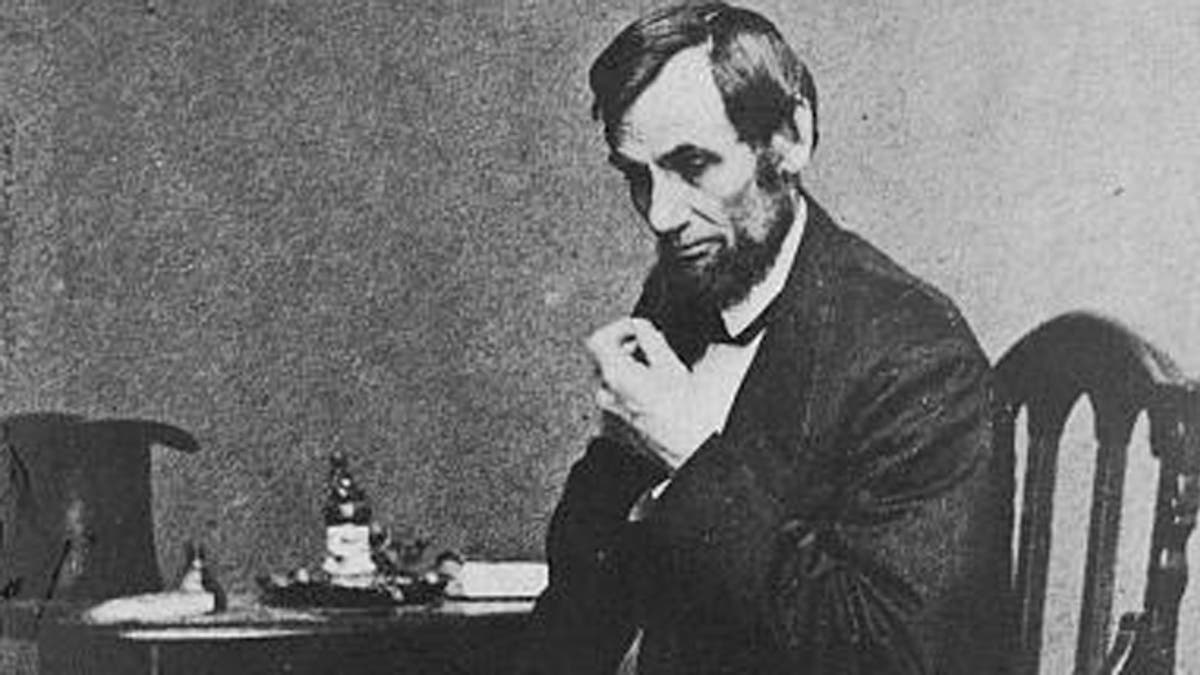
(Library of Congress)
Abraham Lincoln was not the featured speaker at the dedication of the soldiers’ cemetery at Gettysburg on November 19, 1863, yet something happened on his journey to the speaker’s stand that led him to create the speech that is today a landmark of American identity.
Lincoln’s was asked merely for “a few appropriate remarks” to follow Edward Everett’s grand oration.
He later told a friend that the night before leaving Washington he only found time to write “about half of a speech,” but contrary to later stories Lincoln wrote nothing on the train.
At the home of his host, David Wills, Lincoln worked on his speech for about an hour and then showed it to Secretary of State Seward, who perhaps suggested the last words, “perish from the earth.”
[pullquote]
Seward had used that phrase before and “perish” was a favorite word with him; Lincoln had written the word only three times in the last ten years. At about midnight, Governor Curtin of Pennsylvania saw Lincoln “copying” what by that time was certainly a finished text.
The crisis came on the morning of the 19th, after Lincoln visited the battlefield and “the ground around the seminary,” as Seward described it, already famous as the site where General John F. Reynolds, who Lincoln called “our gallant and brave friend,” had been killed during the first day of fighting.
Upon returning to his room before the procession to the cemetery at 10 am, Lincoln undertook a crash revision of his speech. He jettisoned the last part and probably at the same time underlined one word on the page he kept that declared the world can never forget “what they did here.” Finally, by a hurried, ungrammatical revision, he joined that first page evoking the nation’s founding to a new page highlighting the "devotion" of the soldiers—a word used in this speech only on this page, twice.
Lincoln was coming to a new vision that needed expression, but it was upon the speaker’s platform at the great cemetery that he fully revealed what Gettysburg was coming to mean for him, and for the nation.
Lincoln was brought to tears by the opening prayer that culminated in thousands repeating, before the freshly mounded graves, the ancient words of consolation, “Our Father, who art in heaven…” and again by Everett’s moving depiction of northern women rushing to the battlefield to heal the wounded and console the dying.
As Lincoln stepped forward to speak, several observers noted that a sudden quiet descended upon the crowd, and the emotions of the day came home to him more deeply. According to a newspaper report likely written by Lincoln’s secretary John Hay, when speaking, “the President sensibly felt the solemnity of the occasion, and controlled himself by an effort."
Another paper reported, “you could not mistake the feeling and sentiment of the vast multitude before him.”
Lincoln’s words brought together his reflections at the White House in Washington with his emotions at the Wills house in Gettysburg, the ideals of the “fathers” and the blood of the soldiers. This was the “great task,” to assure that the nation would, “under God”---words Lincoln spoke spontaneously, under the inspiration of that moment---have “a new birth of freedom,” an unprecedented phrase first found on that new page written after his return from the battlefield.
While speaking before the living and the dead Lincoln infused his words with his own deeply felt commitment—his own dedication—to democratic government, freedom, and equal rights for all, in the name of what they did there.
For many who heard him, this was the birth of the authentic legend of Lincoln at Gettysburg, a myth whose reality can be verified in contemporary accounts.
On that brilliant November day, Lincoln gave us the words and the image of an enduring memory that has been vital for elevating our vision and clarifying our purposes.
Lincoln’s journey to Gettysburg is our nation’s odyssey from the principles of the founders to the agony and majesty of the Civil War. And, in part because of his journey, and our larger passage toward an eternal ideal he traced, we continue to make it a journey with the promise of hope.
